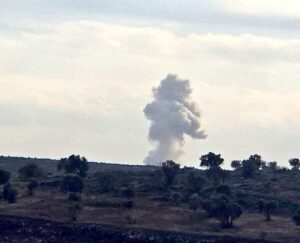This was announced by Prime Minister Benjamin Netanyahu in an address to the nation. According to him, over the two-month campaign against Hezbollah, the military has decapitated the Shiite group, eliminated thousands of militants, and destroyed much of the missile capabilities and infrastructure along the Lebanon-Israel border.
Netanyahu noted that the agreement was necessary for Israel for three reasons.
First, to focus attention on Iran’s nuclear program and prevent Tehran from acquiring nuclear weapons. According to Netanyahu, the existence and future of the Jewish state depend on neutralizing this threat.
Second, the military needs rest and regrouping for further combat operations. Moreover, Netanyahu stated that there is a significant delay in arms shipments from the United States, without which the forces cannot complete their assigned tasks. The ceasefire will provide an opportunity to resolve this issue.
Third, Israel needs to isolate Hamas by depriving it of Hezbollah’s support. The actions of the Shiite group force Israeli forces to maintain combat-ready brigades on the Lebanon-Israel border, brigades that could have been deployed in the Gaza Strip. Additionally, the agreement, according to the Prime Minister, will help free hostages.
Netanyahu concluded his statement by saying that the military had succeeded in pushing Hezbollah “decades back,” and the group will never be the same again. He also unexpectedly threatened Syrian President Bashar al-Assad, stating that he was “playing with fire.” Netanyahu likely refers to Syria’s assistance to Hezbollah, which Tel Aviv believes includes smuggling weapons from Iran and providing territory for Iran-sponsored groups, which could have future consequences.
The agreement is based on UN Security Council Resolution 1071. It provides for a cessation of hostilities, the withdrawal of Hezbollah forces behind the Litani River, and the dismantling of military infrastructure in southern Lebanon. Under the terms of the agreement, the only armed forces remaining in the southern part of the country will be the Lebanese Armed Forces and UN peacekeepers.
The ceasefire was reached following a proposal by the United States and France, who have committed to monitoring its implementation. Washington will also share intelligence on violations by Hezbollah, the movement of militants, and more. The White House has recognized Israel’s right to respond to potential threats from Lebanon, with the responsibility for informing Washington placed on Tel Aviv. U.S. President Joe Biden, commenting on the ceasefire, noted that the U.S. will also make new efforts, together with Turkey, Qatar, and other countries, to achieve a ceasefire in the Gaza Strip.






Be First to Comment